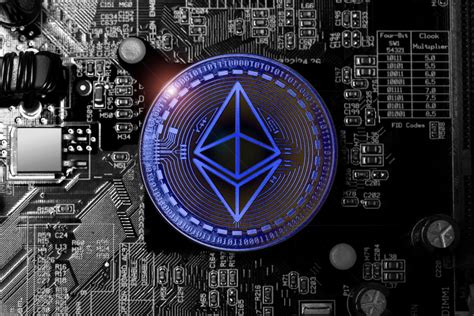Title: “Development disruption: tools without code to implement tokens ERC-20 in the Ethereum block chain”
Introduction
As the world becomes more and more digital, decentralized finances (defi) and non -fungible tokens (NFT) have emerged as popular alternatives to traditional financial systems. One of the key aspects of these projects is the ability to implement and manage their native cryptocurrencies, known as tokens. Ethereum, with its programmable blockchain, has become a de facto standard to create and administer tokens ERC-20. However, implementing an ERC-20 Token in the Ethereum Network can be a complex process, which requires a significant technical experience.
The challenges of traditional development
Traditional software development implies writing custom code to build and implement applications. While this approach allows high flexibility and customization, it also requires extensive knowledge of programming languages, blockchain development and infrastructure configuration. When implementing an ERC-20 Token in Ethereum, developers must navigate the following challenges:
* Intelligent contract implementation : Create an intelligent contract that meets specific requirements is a tedious process, which implies multiple steps and possible errors.
* Tokens creation : Producing a high quality Token ERC-20 requires a deep understanding of blockchain development, including the cryptocurrency economy, tokenomics and safety measures.
* Interoperability with Ethereum Networks : Ensure perfect communication between the Ethereum Network and other blockchains or external services is crucial for successful implementation.
Solutions without code: a game game
In recent years, solutions without code have emerged as an viable alternative to traditional development. These tools offer a simplified approach to build personalized applications without requiring extensive programming knowledge. This is how they can be used to implement tokens ERC-20:
* Platforms without code for the development of intelligent contracts : Platforms such as Openzeppelin, Tuffle Suite and Matic Network provide non -code frameworks previously built to create intelligent contracts. These platforms offer a range of features, which include automatic implementation, tests and security audit.
* Customizable templates

: Many platforms without code come with customizable templates that can be adapted to specific use cases or types of tokens. This allows developers to create unique solutions without extensive coding knowledge.
* Interoperability with other blockchain networks : The platforms without code often admit communication between blockchain, allowing perfect interactions between different networks.
Examples of tools without code for the implementation of tokens ERC-20
Several tools have been developed specifically to implement tokens ERC-20 on the Ethereum Network. Some notable examples include:
* Matic Network : Matic Network provides a platform without code to build decentralized applications (DAPPS) and intelligent contracts, including tokens implementation.
* PolyMath : PolyMath offers a range of code tools to create blockchain-based applications, including ERC-20 tokens. Its platform allows developers to create custom templates and implement their own tokens.
* Binance Smart Chain : Binance Smart Chain provides a solution without code to implement tokens ERC-20 on its network.
Conclusion
While traditional development still has its place in the world of blockchain projects, solutions without code offer a promising alternative. By taking advantage of construction frames, customizable templates and interoperability capabilities, developers can create high quality ERC-20 tokens without extensive programming knowledge. As Blockchain’s panorama continues to evolve, it will be exciting to see that more tools arises without code that address specific pain points in the deployment of Token.

